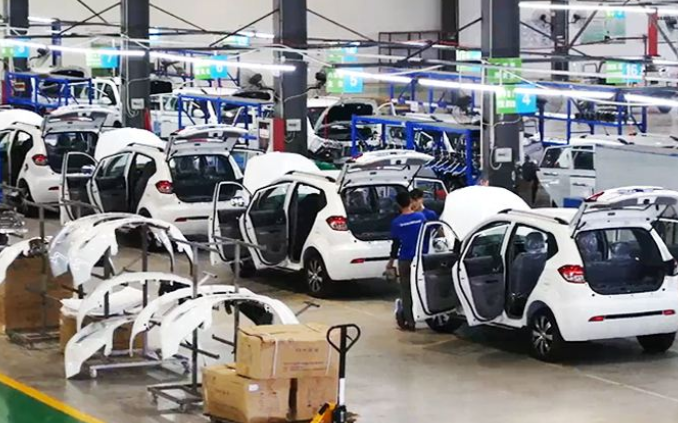BEIJING, March 5 (Xinhua) -- China's automobile industry is recovering with increasing number of vehicle production bases resuming operation, the Xinhua-run Shanghai Securities News reported on Thursday.
As of March 3, the operating rate of the major production bases of 16 key vehicle groups in China has reached 84.1 percent, with 66.5 percent of their employees returning to work. Except in areas hard-hit by the epidemic, the automobile enterprises have basically resumed work, according to the data released by the Ministry of Industry and Information Technology (MIIT) on Wednesday.
"There is basically no problem in production now," said Li Xuefeng, deputy general manager of Great Wall Motors Xushui Plant.
It is reported that since February 18, the major vehicle production bases of Great Wall Motors have resumed production, and its production capacity is now steadily increasing.
Meanwhile, the logistics recovery has also helped the work resumption, which ensures the smooth supplies of parts and components for the carmakers.
SAIC Anji Logistics Co., Ltd., a wholly-owned subsidiary of SAIC Motor, have currently used air cargo flights to send parts and components of General Motors and Ford Motor Company from Shanghai to the United States and Thailand to ensure the production of the two companies at local factories.
For the core and special parts supply during the special period, charter flights were adopted immediately to grab time and quickly restore the global supply chain, according to SAIC Anji Logistics.
It is learned that during the epidemic prevention and control period, SAIC Anji Logistics has shipped more than 200 containers loaded with parts and components to Thailand, India, Indonesia and other places, which has ensured the normal operation of SAIC's overseas production bases.
In addition to upstream recovery, the downstream sales market has also recovered from a "frozen" state.
According to the Wednesday data released by the China Passenger Car Association (CPCA), the retail sales of passenger cars nationwide in February are expected to decline by 80 percent year-on-year. However, the average daily sales volume has recovered from less than 1,000 units in early February to 7,099 units at the end of the month.
Meanwhile, some local governments have rolled out favorable policies to encourage automobile consumption.
On Tuesday, Guangzhou, capital of south China's Guangdong Province issued a document to grant subsidies to auto sales companies.
Central China's Hunan Province on Wednesday unveiled a policy to support the carless families in purchasing the first new energy vehicle (NEV), and accelerate the layout and construction of NEV charging infrastructure outlets. (Edited by Hu Pingchao, hupingchao@xinhua.org)




 A single purchase
A single purchase









